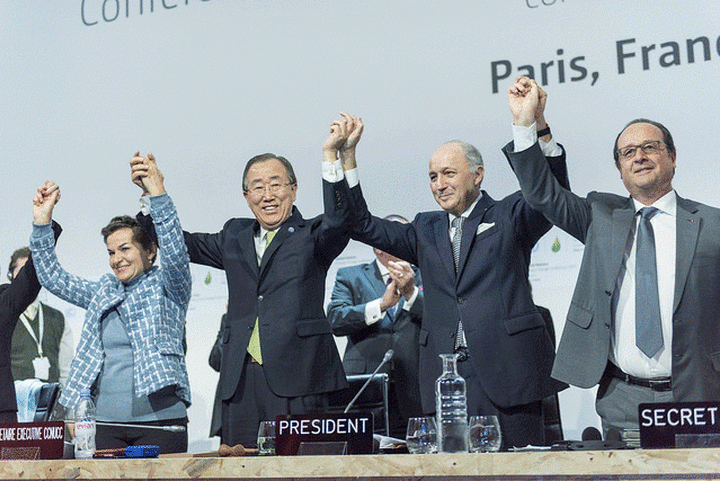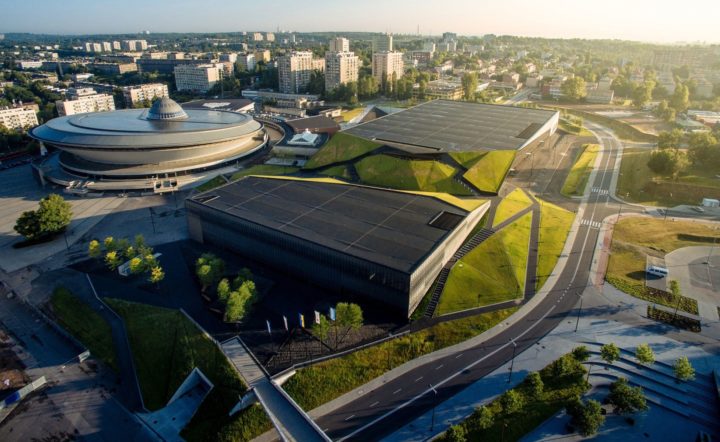Businesses must keep Paris Agreement on track
Business groups need to help Governments to bridge the gap between climate science and action.
By George Smeeton
Share
Last updated:
For those who put climate change on top of the list of global challenges, the Paris Agreement of 2015 represents the highpoint of achievement to date. 192 countries signing up to limit global temperature increases to well below 2 degrees Celsius and aiming for 1.5 degree of warming would have been unthinkable at the previous moment for an international agreement in Copenhagen six years earlier.

A recent series of papers from Chatham House examines the role of the financial sector, business groups, NGOs and sub national governments in helping to create the mood music and support for the agreement that was delivered in Paris in December 2015. They ask what lessons can be learned in the run up to the 2020 opportunity for countries to increase the ambition of their policies and measures.
This is important because, whilst nations agreed in Paris what ambition should be aimed for and made their commitments, the pledges of 2015 did not add up to the ambition. In 2020 countries will be invited to review their ‘contributions’ and it’s important that they start to bridge that gap between what the science says and what they have offered. If they fail to do so, climate impacts will become more dangerous and limiting warming will become costlier.
The success of Paris was not the natural culmination of years of discussion and debate but the result of some sustained choreography and orchestration by key actors. Fundamental to its achievement were the intense preparations by the US and China, the UN's climate convention (UNFCCC), the European Union, the diplomacy of the French presidency, the stream of support provided by high profile interest groups – from environmental organisations, from local and regional governments, and notably from the financial community - and with a particular robustness from businesses.
Business groups offered political cover for governments to take action and highlighted to the public that there were practical and economically viable solutions to reducing emissions. Many groups were active but notably We Mean Business was set up to help coordinate the messaging of a coalition of business organisations - it delivered briefings and provided a stream of business ambassadors that could talk about the business case for climate action. The World Economic Forum put climate change high on its agenda and provided a platform for those business ambassadors. The International Emissions Trading Association lobbied hard to keep trading and ambition in a deal and many other companies and business groups provided a positive mood music for ambition as countries developed their targets and negotiators put together the deal.
It is not necessary to labour the point that, since Paris, the politics have changed, with the growth of populist policies and the rise of populist leaders, some of whom are dismissive of the climate threat. Under the current circumstances it is even more important for business and other groups to provide the pressure and momentum to keep the Paris Agreement on track and to encourage governments to increase the ambition of their commitments in order to bridge the gap between the science and the action.

There are some important differences though for delivering a successful ‘ratchet’ of ambition. Governments are no longer focused on just energy mitigation policies. While the implementation of renewable energy projects may be wanting, there is, nevertheless a broader understanding of the benefits, not least because the costs have dramatically reduced and some of the supporting technologies have vastly improved. Governments now need to hear from the businesses who are tackling the more intractable problems of mobility, agriculture and industry. They also need to hear more from the entrepreneurs who are tackling problems across the globe – not just the leaders of multinationals (although their voices are important).
To work against the difficult politics needs a broader slew of experiences that are relevant for diverse circumstances. The environmental organisations, regional governments and investors need to find the fresh business voices with new solutions and provide a platform for them. These new voices are often unaware of their relevance or who they should be talking to. They have often not had access to the platforms that can amplify their voices. Importantly the audience post-Paris needs to be broader too including the regional governments, finance and industry ministries and other businesses who can support or scale these experiences and build the confidence in taking further action.
Jill Duggan has years of experience working on climate and energy for governments (UK and European Commission) industry (Doosan Babcock) and leading climate focused business groups (Prince of Wales’s Corporate Leaders Group and the European Green Growth Platform). She is now running her own independent consultancy, Carbon Policy Associates Ltd.
Share